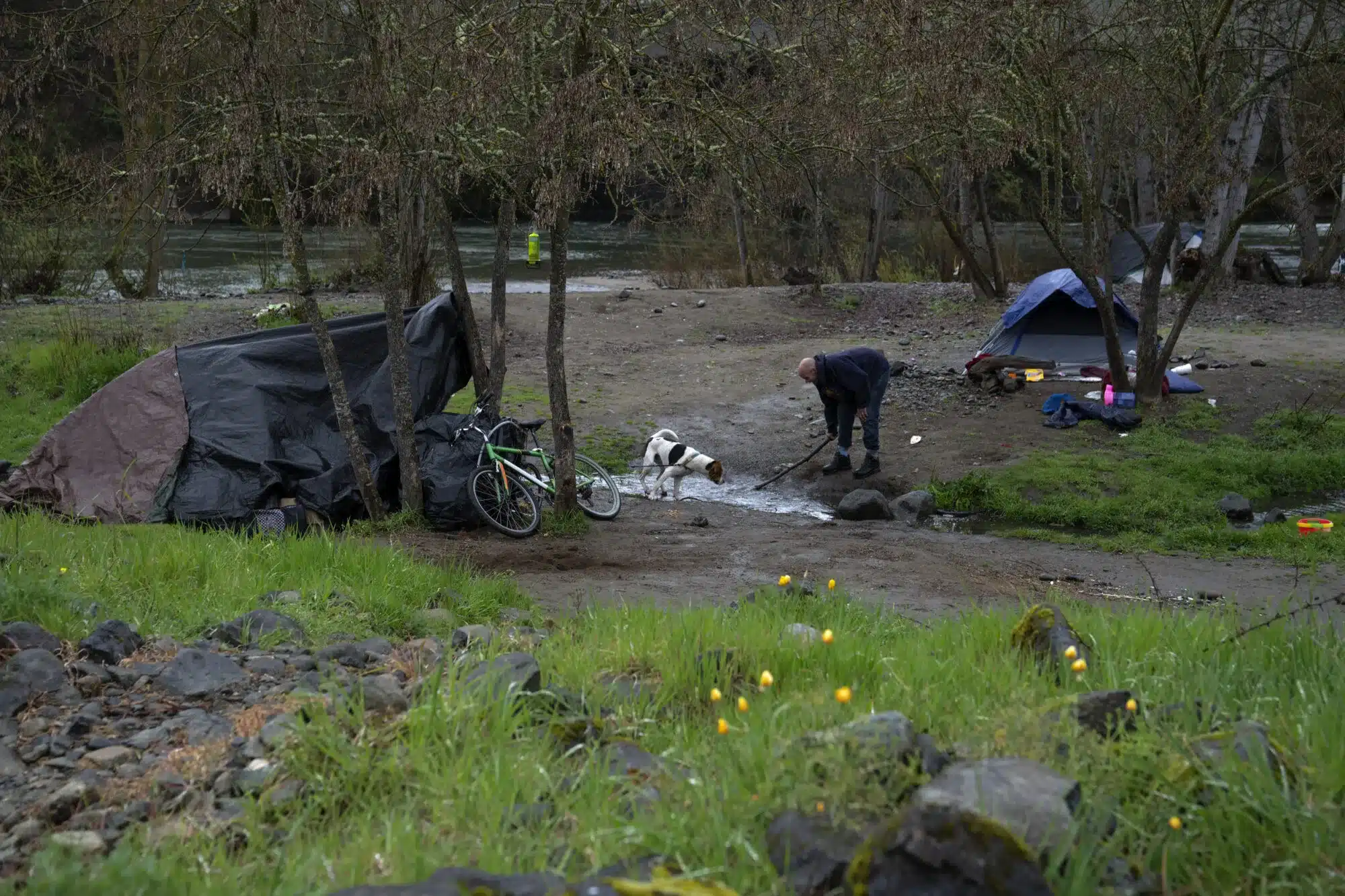This article first appeared on the Magnolia Tribune.

A man plays with his dog in Baker Park next to his tent, at left, after using the stick to help the stream of water flow better on Friday, March 22, 2024, in Grants Pass, Ore. (AP Photo/Jenny Kane)
- Justice Gorsuch, writing for the majority, says the 8th Amendment doesn’t authorize federal judges to dictate this Nation’s homelessness policy.
Cities can enforce bans on homeless people camping or sleeping outdoors in public spaces.
That’s the latest ruling from the U.S. Supreme Court in a 6-3 decision stemming from the case City of Grants Pass v. Johnson out of Oregon.
According to court documents, Grants Pass, Oregon, like many local governments across the Nation, has public camping laws that restrict encampments on public property. The Grants Pass Municipal Code prohibits activities such as camping on public property or parking overnight in the city’s parks. The Court notes that initial violations can trigger a fine, while multiple violations can result in imprisonment.
Justice Neil Gorsuch, writing for the majority, said the Court cannot say that the punishments Grants Pass imposes qualify as cruel and unusual.
“Homelessness is complex. Its causes are many. So may be the public policy responses required to address it. The question this case presents is whether the Eighth Amendment grants federal judges primary responses,” Justice Gorsuch wrote. “A handful of federal judges cannot begin to ‘match’ the collective wisdom the American people possess in deciding ‘how best to handle’ a pressing social question like homelessness.”
Gorsuch goes on to write that the Constitution’s Eighth Amendment “serves many important functions, but it does not authorize federal judges to wrest those rights and responsibilities from the American people and in their place dictate this Nation’s homelessness policy.”
Justice Clarence Thomas opined in concurrence with the majority that the Court and lower courts should be wary of expanding the Cruel and Unusual Punishments Clause beyond its text and original meaning.
Justice Sonia Sotomayer, writing for the minority in dissent, said, “Sleep is a biological necessity, not a crime.” She said issuing fines or jail time for camping in public spaces is “unconscionable and unconstitutional.”
“For some people, sleeping outside is their only option. The City of Grants Pass jails and fines those people for sleeping anywhere in public at any time, including in their cars, if they use as
little as a blanket to keep warm or a rolled-up shirt as a pillow. For people with no access to shelter, that punishes them for being homeless,” Sotomayer wrote.
You can read the full decision from the U.S. Supreme Court here.
This article first appeared on the Magnolia Tribune and is republished here under a Creative Commons license.
Read original article by clicking here.

